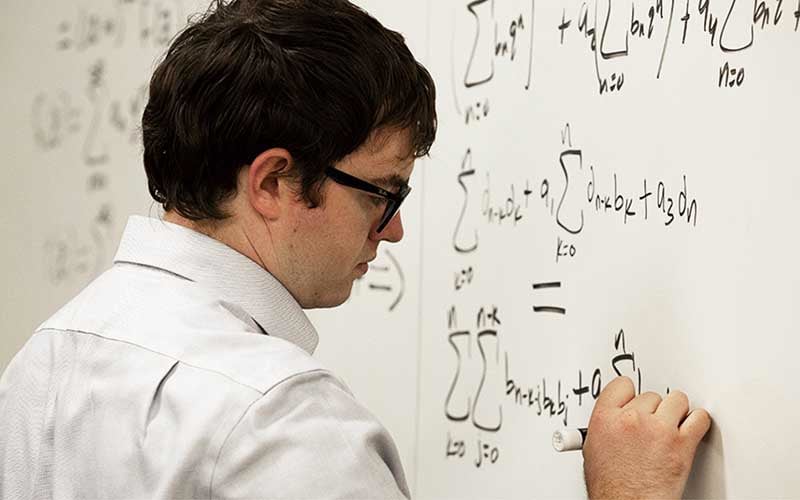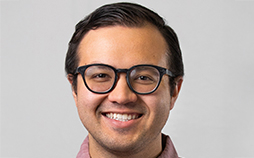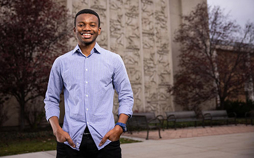Blending Research and Revelation for Better Translation
BYU PhD student uses AI to expand gospel access through improved translation for more languages.
February 2020

Mathematics student Jonathan Hales says that one of the most rewarding aspects of his BYU experience has been mentored research. “I’ve been able to contribute to the world of mathematics,” he says.
As an undergrad, Hales presented at a Tufts University workshop on research he conducted on automorphic forms, which provide mathematicians with analytic ways to study solutions to equations. Hales was mentored by Professor Michael Griffin on this project for 18 months.
Griffin conducted research with a professor when he was a student at BYU, and this has affected how he mentors students today. “I try to help guide the students to an understanding of the research rather than just lecturing,” he says.
Last year, the College of Physical and Mathematical Sciences had a record 953 undergraduate students in paid research positions. With more than 3,000 students in the college, Griffin would like to see more get the chance. “I want my students to have a grasp on the problem and to be able to turn their observations into a formal proof and eventually a paper,” he says.

BYU PhD student uses AI to expand gospel access through improved translation for more languages.

When Daniel Ekpo became president of the BYU chapter of the Association for Computing Machinery, he learned that being a leader meant being a mentor and a friend.

BYU nursing students go to Paraguay to teach teens about the risks of being sexually active.